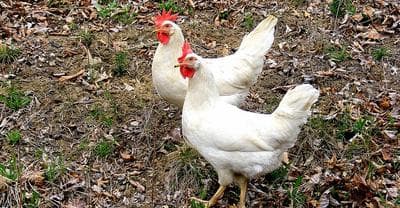Advertisement
China Warns Olympic Athletes About Banned Substances In Restaurant Meat
Resume
Chinese marathoners training for the Olympics have been told to watch what they eat-- and we're not talking about junk food.
Some are raising their own chickens, others are eating yak meat from local herdsmen in order to avoid restaurant and store meat that can contain a chemical called clenbuterol.
Clenbuterol In Meat
Clenbuterol is sometimes fed to livestock to produce leaner meat, but the substance is banned and is considered a performance-enhancing drug by the World Anti-Doping Agency.
You won't find clenbuterol in American livestock, but other substances are used here-- some of which are banned in China. For example, Ractopamine, a feed-additive used in the U.S., is banned in Taiwan, China, and the EU.
The Debate About Ractopamine
Health officials in the U.S., Canada, Mexico, South Korea and elsewhere feel it is safe in meat used for human consumption.
Dr. Scott Hurd of Iowa State University says ractopamine does not have the toxicity of clenbuterol and it quickly clears from the animal.
"Once it gets to the dinner plate, there's virtually none of it left in the meat," he told Here & Now's Robin Young.
Ractopamine is used in animals, says Dr Hurd, to increase efficiency and reduce the carbon footprint.
But on the advocacy website AlterNet, columnist Martha Rosenberg compiles criticism of ractopamine:
A article in the 2003 Journal of Animal Science confirms that "ractopamine does affect the behavior, heart rate and catecholamine profile of finishing pigs and making them more difficult to handle and potentially more susceptible to handling and transport stress."
- Food & Environment Reporting Network: Dispute Over Drug In Feed Limiting US Meat Exports
Guest:
- Dr. Scott Hurd, assistant professor, College of Veterinary Medicine, Iowa State University, former member of the Food Safety Inspection Service, USDA
This segment aired on March 23, 2012.